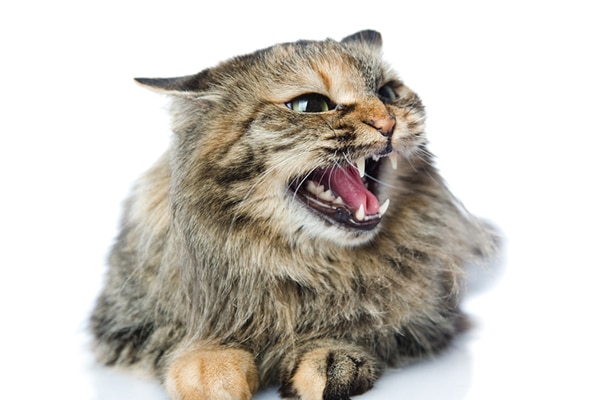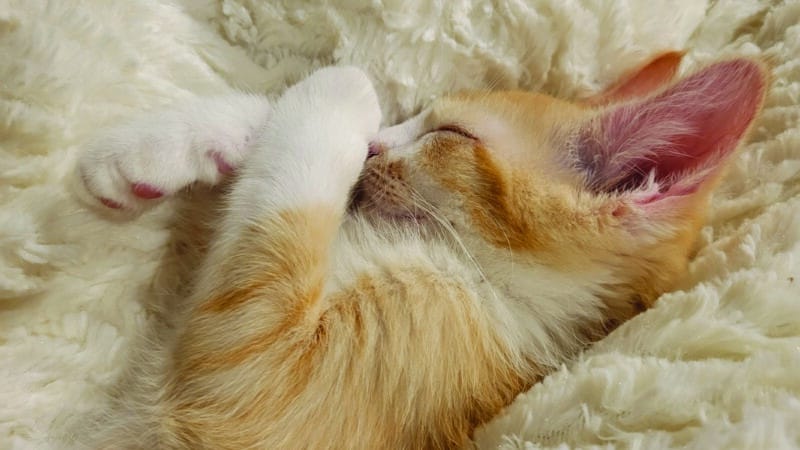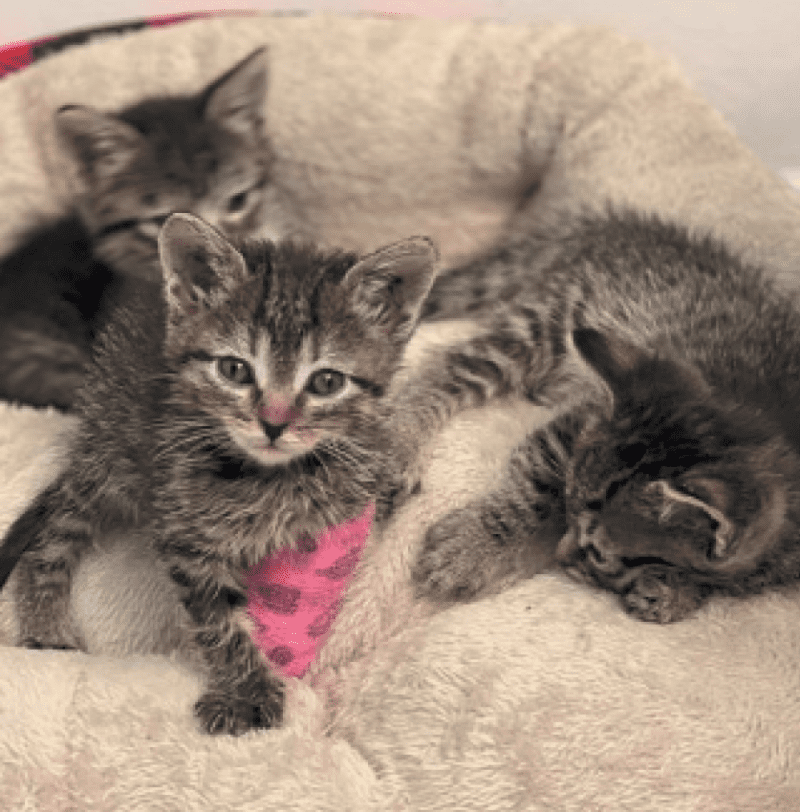Picture this: Your cat is sitting peacefully, minding his own business, when suddenly the family dog comes bounding up to him and goes in for a playful sniff. The cat leaps to his feet and, before you know it, his ears are back, his mouth is wide open and his tongue is curled into a U shape … and then you hear it: the unmistakable sound of cat hissing. But why do cats hiss, where did the hiss originate and what should you do if a cat hisses at you?
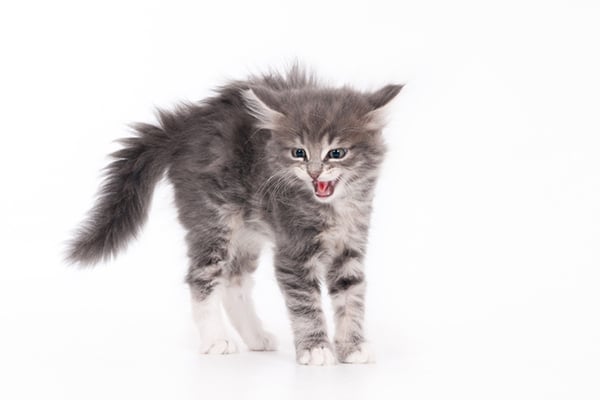
First, the origins of cat hissing
Some feline behavior experts believe that the cat learned how to hiss by imitating the sound of snakes. Mimicking the sound of other species is a survival technique used by many animals, and there’s no mistaking the distinct warning given by a hiss.
What’s going on inside the brain of a hissing cat?
He’s feeling a mixture of fear, confusion, unhappiness and surprise. The cat’s adrenaline is flowing because he’s startled and scared, and he’s operating on sheer instinct when he hisses.
Why do cats hiss?
There are many reasons, but here are some of the most common.
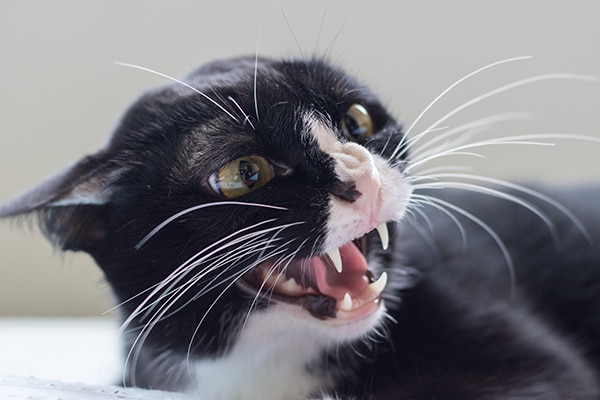
1. The warning hiss
A mother cat may hiss to defend her kittens from intruders. Two cats who haven’t been properly introduced yet may hiss at one another as a way to say “stay away from me!” In that case, the hiss serves as a way to warn the other cat without escalating into an actual cat fight in which one or both cats may be injured.
When a cat meets an unfamiliar person in your home, he may hiss at that person because he doesn’t know them, and possibly because they carry the scents of other pets on their clothes. In this case, the cat hissing is a “distance increasing” behavior — a way of warning people to stay away.
2. The in-pain hiss.
Cats who are in pain hiss when they’re touched in a spot that hurts. Sometimes, cats even hiss at the veterinarian because they don’t like being handled, poked and prodded — especially when that poking and prodding produces pain.
3. The feline non-recognition aggression hiss.
If you have multiple cats and you take one to the vet, your other cats may hiss at that cat when he comes back because he smells like the clinic, and that’s not a smell they greet with joy. It’s part of a phenomenon known as non-recognition aggression — because the cat no longer smells familiar, he becomes a stranger until he gets the “family scent” back.
4. The play hiss.
The play hiss is generally a shorter hiss than the defensive hiss, and it’s particularly common in kittens. You’ve probably seen a young cat respond to a sudden loud noise by jumping up and hissing, with all his fur standing on end. A kitten may also hiss if his littermates are getting a little too rough in their play.
What should you do if a cat hisses at you?
First, recognize that the hiss is a warning: your cat is feeling vulnerable, frightened or in pain, and he needs time to chill before you approach him again. Give him some space, and don’t chase after him. You might even want to close the door to the room he’s in so he can regain his composure without having to worry about being interrupted by other people and pets.
What if your cat hisses when you’re petting him? It may be because he’s getting overstimulated. Stop petting and let the cat be. If he wants to go away, let him. In the future, observe your cat’s body language while you’re petting — if his tail starts twitching or he keeps looking at your hand, it’s time to stop.
If you have children, teach them to leave the cat alone if he hisses. That will prevent potential injuries.
Consider adding vertical territory so your cat has a way to be in a room with family but have a high vantage point so he can enjoy the company without having to deal with pesterers like little kids or dogs.
What if you must handle a hissing cat?
The exception to the “back off” rule is if it’s a medical emergency. An injured, ill or in-pain cat will hiss because he knows he can’t fight and he hopes that hissing will warn predators and people away.
Unfortunately, you’re going to have to pick up your injured or sick cat so you can get him to the veterinarian. But you’ll need to protect yourself because a cat who’s in pain will very likely lash out with claws and teeth if you handle him. Here are some guidelines on safe ways to restrain an injured cat.
What humans can learn from cat hissing
Ultimately, the cat hiss is designed to make people and animals back off. As long as you respect your cat’s boundaries and his “petting threshold,” you shouldn’t encounter too many hisses in your life.
Thumbnail: Photography by photodeti/Thinkstock.
Read more about cat hissing on Catster.com:

